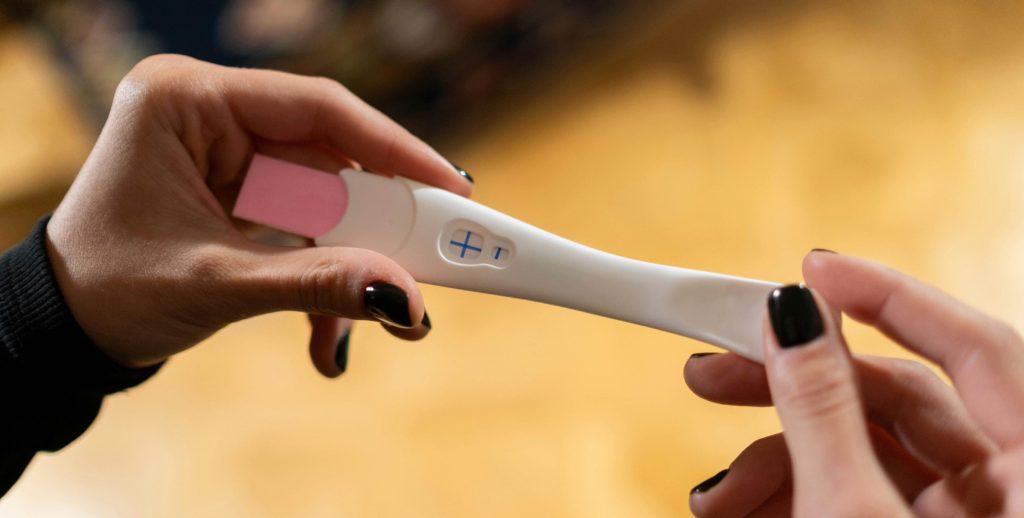Can Chlamydia make you infertile?
If you’re sexually active and you’re aware of the risks, you probably know about Chlamydia. It’s the most common bacterial STI in the world, and many sexually active people will get it in their lifetime.
Getting treated for Chlamydia is pretty simple: in most cases, after testing positive, the next course of action is to take antibiotics. The good news for those worried about Chlamydia is that it’s easily detected and easily cured.
However, many people may not know about the effects of prolonged Chlamydia infections, especially on their fertility.
Keep reading to find out more.

Get a quick Chlamydia test at home with Better2Know’s Everywhere service.
What is Chlamydia?
Chlamydia is a sexually transmitted infection caused by the bacterium Chlamydia trachomatis. When you get a Chlamydia infection, bacteria from your infected partner infect your genital organs. These bacteria then multiply and cause a response from your immune system, which in turn causes symptoms.
While most Chlamydia infections affect the genitals, you can also get Chlamydia infections in other parts of your body, like your rectum and throat.
What are the symptoms of Chlamydia?
It’s often difficult for someone to know if they have a Chlamydia infection since many infections don’t produce any symptoms. Moreover, the symptoms could be very minor and mistaken for other conditions.
However, when symptoms do occur, they may include any of the following:
Men
- Burning or painful sensation when urinating
- Feeling the need to urinate more often, or with a sense of urgency
- Abnormal discharge from the penis
- Inflamed or swollen testicles (very rare)
- Discomfort around the tip of the penis.
Women
- Burning or painful sensation when urinating
- Abdominal pain
- Abnormal discharge from the vagina
- Unusual deep pain during intercourse
- Bleeding between periods
- Back pain
What is Chlamydia’s relationship to infertility?
An untreated Chlamydia infection can negatively affect the fertility of both sexes. However, it can be argued that women suffer worse than men in this respect.
For men
In men, untreated Chlamydia is less likely to cause serious health concerns, but in some cases, it can lead to epididymitis – an infection of the epididymis – which can negatively affect a man’s fertility.
For women
If left untreated, Chlamydia can cause serious complications like Pelvic Inflammatory Disease (PID), an infection of the female reproductive organs like the uterus, fallopian tubes, and ovaries, which can cause scarring and blockages in the fallopian tubes. This can prevent the egg from being fertilised by sperm or prevent the egg from travelling down the fallopian tubes and implanting in the womb.
Chlamydia infections have also been linked with ectopic pregnancies, where the fertilised egg implants in the fallopian tubes rather than the womb. This is a medical emergency.
Symptoms of PID are the same as a normal, uncomplicated Chlamydia infection, and include:
- Pain in the lower abdomen or pelvis
- Vaginal discharge that’s green or yellow and that has an unpleasant odour
- Painful and frequent urination
- Heavy or painful periods
- Pain during sex
A physical examination by a doctor can help to tell normal Chlamydia apart from PID.
How likely am I to become infertile if I have Chlamydia?
There’s no way to know if you will experience infertility if you have Chlamydia. However, around 10-15% of women with Chlamydia will develop PID. About 3 out of every 100 women with Chlamydia will develop infertility.
In general, the rule of thumb is that the less time you are infected the less likely it is that you will have problems with infertility. This is the most important to get tested regularly for Chlamydia.
In men, damage to the reproductive organs, such as decreased sperm mobility, changes in semen concentration, and changes in the appearance of sperm can negatively affect their potency. Although infertility caused by Chlamydia in men is rare, some studies show that STI-related changes may cause up to 15% of male infertility.
How long before Chlamydia causes infertility?
The time it takes for Chlamydia to potentially cause infertility can vary from person to person. Not everyone with Chlamydia will face fertility issues. However, untreated Chlamydia can develop into Pelvic Inflammatory Disease (PID) in women within a year, which can lead to infertility. As we mentioned, early detection is key, so no time has been allowed for the infection to do damage.
Does Chlamydia affect pregnancy?
When you’re pregnant, you can still contract the same STIs as when you’re not pregnant, including Chlamydia. If left untreated, Chlamydia can cause complications for both you and your baby.
An untreated Chlamydia infection can:
- Increase the risk of miscarriage
- Increase the risk of preterm birth (before 37 weeks)
- Cause conjunctivitis in the baby during delivery
Make sure you have no STIs like Chlamydia when you begin to think about getting pregnant. Taking this early step will set you up for success when you do decide to conceive.
What are the other long-term effects of untreated Chlamydia?
Beyond the effects on fertility, Chlamydia can affect your health in other ways.
In rare cases, Chlamydia can cause a condition called reactive arthritis. Reactive arthritis is joint pain and swelling triggered by an infection elsewhere in the body, often in the genitals. This condition typically affects the knees, ankles, and feet. It can also cause inflammation in your eyes, skin, and urethra (the tube that carries urine out of your body). Symptoms of reactive arthritis usually resolve within a year but can come and go.
There is also an uncommon version of Chlamydia that does much more internal damage. This is called lymphogranuloma venereum, or LGV. We see it especially in men who have sex with men and share sex toys, with the bacteria infecting the rectum. If you are positive for Chlamydia in the rectum, you will need special advice to find out if you have LGV.
Final thoughts
Many men and women struggle with their fertility all over the world. Protecting yourself from STIs, especially Chlamydia, can protect your fertility and help you conceive if and when the time comes.
If you’re concerned about Chlamydia and want to protect your sexual health, get tested at a sexual health clinic near you. Click the button below to book an appointment today.
If you need help with setting up an appointment, call the number at the top of this page to speak to one of our trained Sexual Health Advisors. They can talk you through your situation, discuss any symptoms you may be experiencing, and even book an appointment for you.

Don’t leave your sexual health to chance. Book an appointment at a sexual health clinic near you.
This article has been medically reviewed by Dr. Steve Chapman, 09/12/2024.
Categories
- Abu Dhabi
- Bacterial Vaginosis
- Bahrain
- Blood Tests
- Cancer
- Cervical Cancer
- Chlamydia
- Dubai
- Fertility
- Gardnerella
- Genital Warts
- Gonorrhoea
- Hepatitis A
- Hepatitis B
- Hepatitis C
- Herpes
- HIV (AIDS)
- HIV Testing
- HPV
- Instant Testing
- Kuwait
- Locations
- Middle East
- Mycoplasma
- Oman
- PAP Smear
- Positive STI Results
- Qatar
- Saudi Arabia
- Sex Education
- Sexual Health
- Sexual Health News
- Sexually Transmitted Infections
- STD Symptoms
- STD Tests and Screens
- STI Results
- STI Treatment
- STIs
- Sustainability
- Swab Tests
- Syphilis
- Trichomoniasis
- Uncategorized
- United Arab Emirates
- Ureaplasma
- Urine Tests




